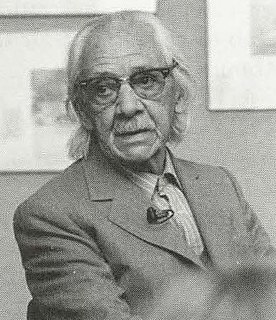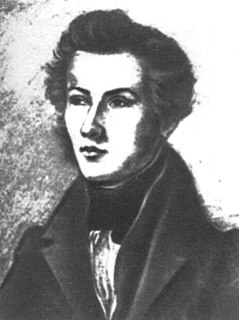A Quote by George Santayana
Nietzsche was personally more philosophical than his philosophy. His talk about power, harshness, and superb immorality was the hobby of a harmless young scholar and constitutional invalid.
Related Quotes
Life is more than thought: what a man feels, and what his senses awaken in him, are more indispensable to his life's fullness than subsequent reflection on their significance. Both Stirner and Nietzsche have elaborated Faust's opening speech in which he bemoans his wasted years in academia: this speech is Goethe's own impeachment of Kant and Hegel . Philosophy proceeds always under the risk of making a fetish of thinking.
The conduct of a man, who studies philosophy in this careless manner, is more truly sceptical than that of any one, who feeling inhimself an inclination to it, is yet so over-whelm'd with doubts and scruples, as totally to reject it. A true sceptic will be diffident of his philosophical doubts, as well as of his philosophical conviction; and will never refuse any innocent satisfaction, which offers itself, upon account of either of them.
Poetry is a bad medium for philosophy. Everything in the philosophical poem has to satisfy irreconcilable requirements: for instance, the last demand that we should make of philosophy (that it be interesting) is the first we make of a poem; the philosophical poet has an elevated and methodical, but forlorn and absurd air as he works away at his flying tank, his sewing-machine that also plays the piano.
For those who want to understand the issues of the environmental crisis, Encounters with the Archdruid is a superb book. McPhee reveals more nuances of the value revolution that dominates the new age of ecology than most writers could pack into a volume twice as long. I marvel at his capacity to listen intently and extract the essence of a man and his philosophy in the fewest possible words.
Plotinus, when he thinks about mind or intellect, the Greek word is 'nous', he thinks about something that's very different, it's much more elevated and special, more abstract, you might say more philosophical than the very broad range of mental events that we talk about in contemporary philosophy of mind.
There are Christians who think and speak altogether too much about the power of Satan. They think of their adversary, they pray about him, they talk about him, and he looms up greater and greater in their imagination. It is true that Satan is a powerful being; but, thank God, we have a mighty Saviour, who cast out the evil one from heaven. Satan is pleased when we magnify his power. Why not talk of Jesus? Why not magnify His power and His love?
The problem I want to talk to you about tonight is the problem of belief. What does it mean to believe? We use this word all the time, and I think behind it lurk some really extraordinary taboos and confusions. What I want to argue tonight is that how we talk about belief- how we fail to criticize or criticize the beliefs of others, has more importance to us personally, more consequence to us personally and to civilization than perhaps anything else that is in our power to influence.
One cannot demand of a scholar that he show himself a scholar everywhere in society, but the whole tenor of his behavior must none the less betray the thinker, he must always be instructive, his way of judging a thing must even in the smallest matters be such that people can see what it will amount to when, quietly and self-collected, he puts this power to scholarly use.






































